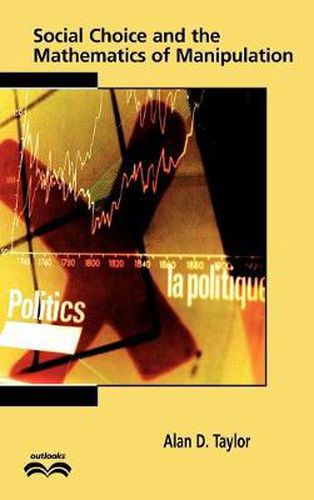Readings Newsletter
Become a Readings Member to make your shopping experience even easier.
Sign in or sign up for free!
You’re not far away from qualifying for FREE standard shipping within Australia
You’ve qualified for FREE standard shipping within Australia
The cart is loading…






Honesty in voting, it turns out, is not always the best policy. Indeed, in the early 1970s, Allan Gibbard and Mark Satterthwaite, building on the seminal work of Nobel laureate Kenneth Arrow, proved that with three or more alternatives there is no reasonable voting system that is non-manipulable; voters will always have an opportunity to benefit by submitting a disingenuous ballot. The ensuing decades produced a number of theorems of striking mathematical naturality that dealt with the manipulability of voting systems. This book presents many of these results from the last quarter of the twentieth century, especially the contributions of economists and philosophers, from a mathematical point of view, with many new proofs. The presentation is almost completely self-contained, and requires no prerequisites except a willingness to follow rigorous mathematical arguments. Mathematics students, as well as mathematicians, political scientists, economists and philosophers will learn why it is impossible to devise a completely unmanipulable voting system.
$9.00 standard shipping within Australia
FREE standard shipping within Australia for orders over $100.00
Express & International shipping calculated at checkout
Honesty in voting, it turns out, is not always the best policy. Indeed, in the early 1970s, Allan Gibbard and Mark Satterthwaite, building on the seminal work of Nobel laureate Kenneth Arrow, proved that with three or more alternatives there is no reasonable voting system that is non-manipulable; voters will always have an opportunity to benefit by submitting a disingenuous ballot. The ensuing decades produced a number of theorems of striking mathematical naturality that dealt with the manipulability of voting systems. This book presents many of these results from the last quarter of the twentieth century, especially the contributions of economists and philosophers, from a mathematical point of view, with many new proofs. The presentation is almost completely self-contained, and requires no prerequisites except a willingness to follow rigorous mathematical arguments. Mathematics students, as well as mathematicians, political scientists, economists and philosophers will learn why it is impossible to devise a completely unmanipulable voting system.